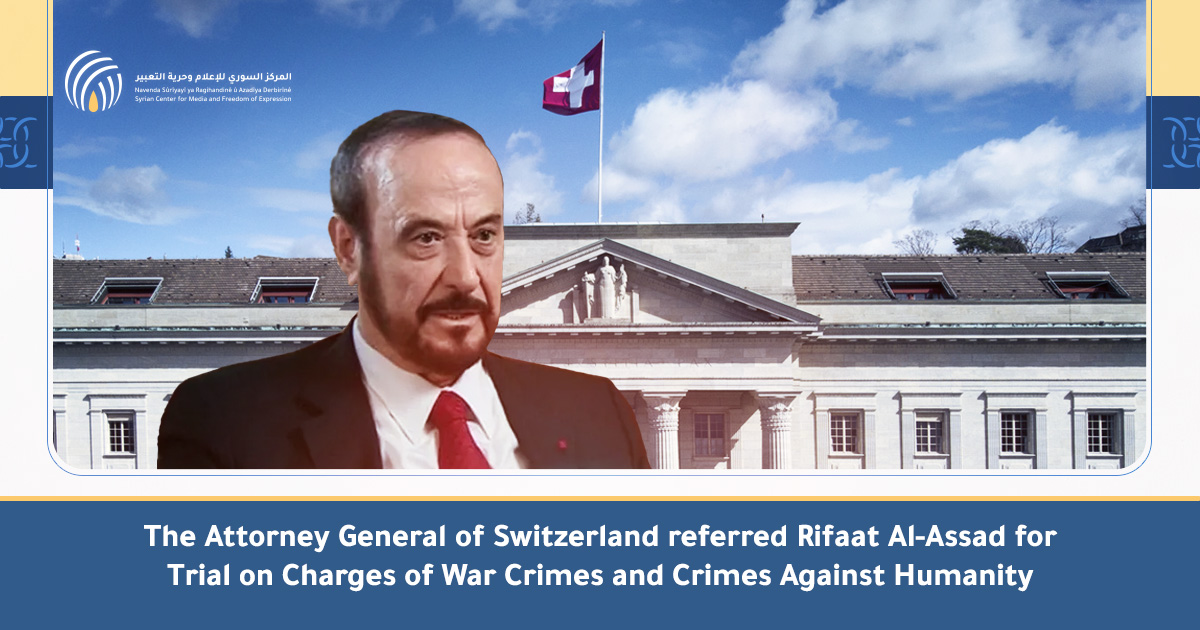On 11 March 2024, the Swiss Attorney General submitted an indictment to the Federal Criminal Court (FCC) against Rifaat Al-Assad, uncle of Syrian President Bashar Al-Assad for committing war crimes and crimes against humanity. The accused is charged with ordering homicides, acts of torture, cruel treatment and illegal detentions in the Syrian city of Hama, within the context of the armed conflict the city witnessed in February 1982, in his capacity as commander of the defense brigades and the former Vice-President of his brother, the former President Hafiz Al-Assad
For its part, the Syrian Center for Media and Freedom of Expression (SCM), along with a number of Syrian human rights organizations, had contributed to building the case file, in cooperation with TRIAL International, which filed a complaint against Rifaat al-Assad in 2013.
The Syrian Center for Media and Freedom of Expression (SCM) welcomes the referral of the suspect to trial, and stresses the importance of holding all perpetrators of war crimes accountable in Syria. However, it regrets the long period that judicial procedures and investigations took, which allowed the suspect to flee to Syria before being tried before European courts.
Despite having a court ruling issued against him in France in 2021 sentencing him to four years in prison and confiscating his property for ill-gotten gains, Rifaat Al-Assad succeeded in escaping from justice by taking advantage of the slow procedures and using his wealth and connections, which allowed him to return to Syria, in a way that raises suspicions and perpetuates a state of impunity.
SCM, thus, stresses the importance of moving quickly to bring the suspect to trial, whether in this case or other cases related to grave violations committed in Syria, because delay deprives victims of access to justice they have been seeking for more than forty years.
It also highlights the importance of such trials, as a gateway to justice for the victims and recognition of the violations and crimes committed against them, even though they do not constitute a substitute for launching a national path for transitional justice, which can entirely end the state of impunity, contribute to overcoming the cycle of violence, and enhance the chances of building sustainable peace in Syria.





